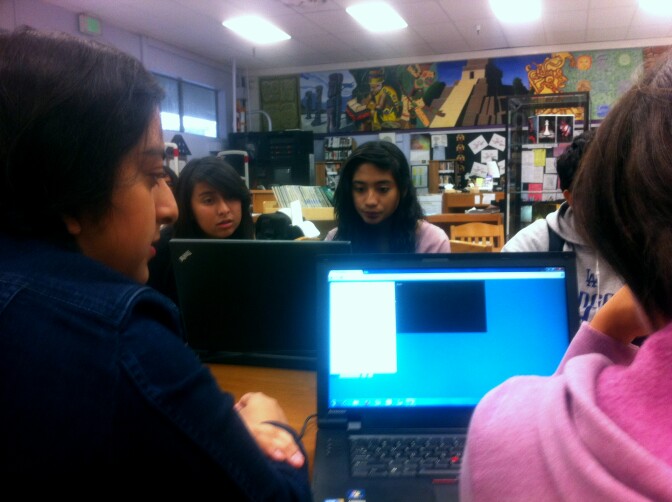This story is free to read because readers choose to support LAist. If you find value in independent local reporting, make a donation to power our newsroom today.
This archival content was originally written for and published on KPCC.org. Keep in mind that links and images may no longer work — and references may be outdated.
Judge: Plaintiffs may still access complete California student database, but with tightened security

A massive database that includes sensitive information on every student who attended California public schools since 2008 will no longer be handed over in its entirety to a small team of experts and lawyers who've filed a lawsuit against the state Department of Education.
Instead, a federal judge has ordered state officials to allow the plaintiffs to use the department's computers to run searches on the state's database, known as CALPADS — which does include some students' Social Security numbers, along with home addresses and test scores.
The order U.S. District Court Judge Kimberly J. Mueller filed this week follows widespread alarm among parents after state officials began notifying them of the pending release last month.
Mueller wrote that her office was inundated with letters objecting to the release of the information — so many, she said, that it would be impossible to individually review each one.
Parents still have until April 1 to mail a letter to the judge objecting to the release. Though sending a letter does not opt a former student out of the release of data, she writes that she "construes the objections in bulk as objecting strongly to public disclosure of personal identifying information."
The plaintiffs — a group of parents who organized into a group called the California Concerned Parents Association (CCPA) — never sought the wide release of the database to the general public. In fact, they have said they never wanted access to the most sensitive data.
CCPA's lawsuit claims the state has been failing to offer special education services to all students who need them — an allegation the state disputes. The plaintiffs' lawyers were seeking access to the state's full database in hopes an expert statistician on their team could run queries to test their claim.
"It is important for the public, especially parents, to understand that this is a civil rights case largely focused on anti-discrimination," a post on CCPA's website read. "The merits of this case will be tried in the court of law — not through the media."
Mueller's order noted that many of the objection letters seem to be based on misconceptions about what data was being disclosed, and to whom.
The plaintiffs have said the data would have been released to a small team of lawyers and experts on encrypted hard drives. The judge would have ordered those drives returned or destroyed after the plaintiffs' team had completed its work.
But Mueller noted that parents who filed letters found that release alarming. Many seemed to read the public notices about the disclosure, "at the extreme, as signaling identity theft risk."
In a written statement, state superintendent Tom Torlakson praised the judge's order.
“The court has heard loud and clear from California’s families that they want their students’ privacy protected. This is a good first step," he wrote. "The court responded to these concerns and ordered additional measures to safeguard data. The California Department of Education will continue to fight vigorously to protect student privacy rights as this case proceeds.”







